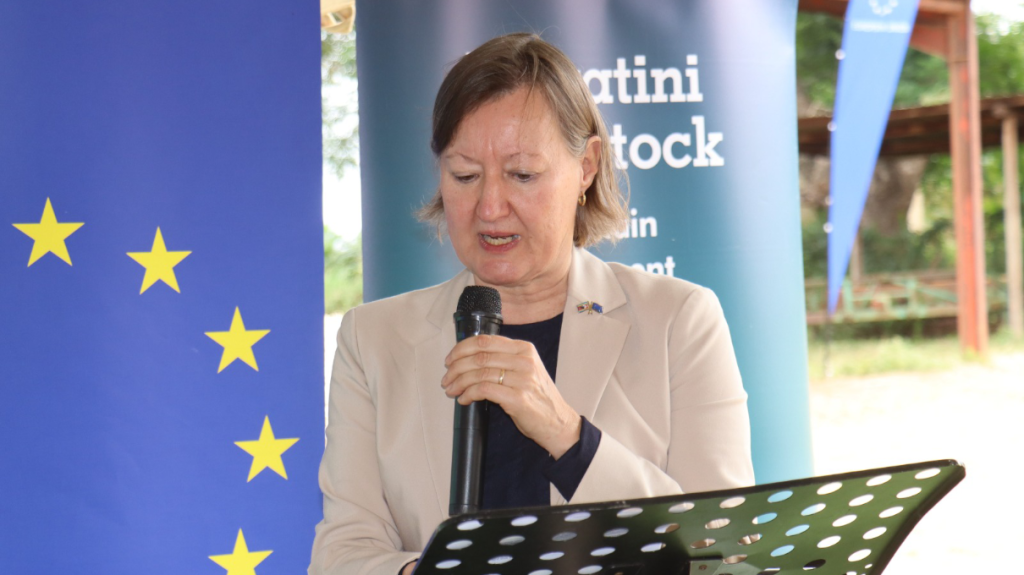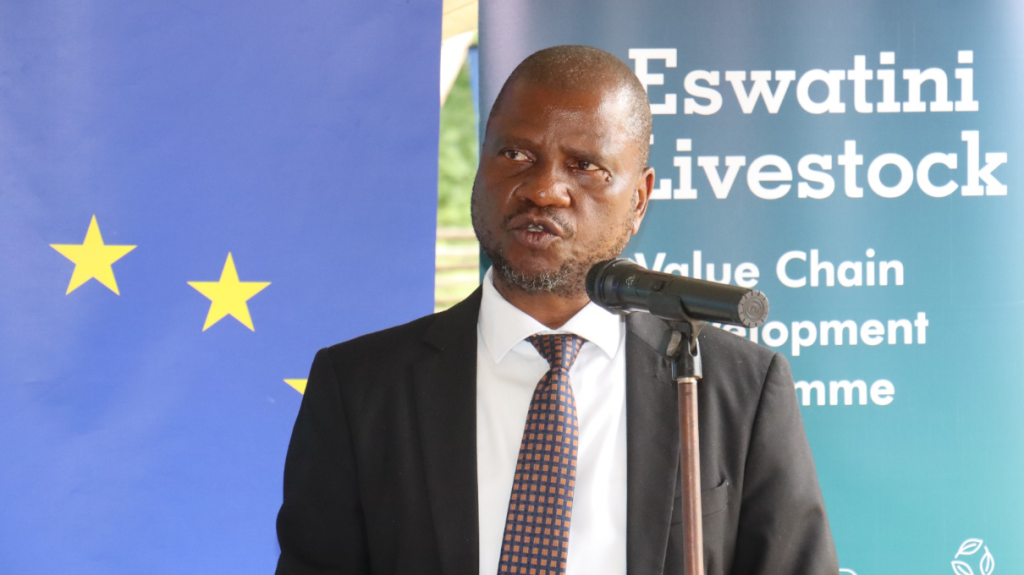
The European Union (EU) and the International Trade Centre (ITC) have handed over E3.1 million worth of haymaking equipment to the Ministry of Agriculture and farmers, marking a major boost for the country’s livestock sector under the EU-funded Eswatini Livestock Value Chain Development Programme.
The handover event was held yesterday at Mpisi Cattle Breeding Farm. This support forms part of the Eswatini Livestock Value Chain Development Programme (ELVCDP), an initiative supported by the EU aimed at improving productivity, strengthening resilience, and enhancing rural livelihoods in Eswatini’s livestock sector.
The equipment includes: four round hay balers, four hay mowers, four hay rakes, and four hay loaders.
Speaking at the handover, Eva Maria Engdahl, Head of Cooperation at the EU Delegation to Eswatini, said the ELVCDP reflects the EU’s shared vision for a resilient and inclusive livestock sector.
“Eswatini holds a special place in its ability to export beef to the EU, a privilege earned through its commitment to stringent quality, traceability and animal health standards. This speaks volumes about the country’s capacity to meet international benchmarks, and the EU remains committed to supporting the sector’s growth,” she said.
She said through instruments like the EU–SADC Economic Partnership Agreement, Eswatini beef enjoys duty-free, quota-free access to European markets, supporting not just trade but economic diversification, rural livelihoods and smallholder empowerment.
Engdahl noted that it was a coincidence that just on Friday last week, the EU and Eswatini were celebrating the founding of the EU 75 years ago.
“This event reflects such great support that the EU citizens hoped for, where all global citizens became economically uplifted for greater benefits for all,” she said.
Bilal Qureshi, ITC Project Manager for ELVCDP, emphasised the programme’s role in advancing value chain growth, stating that this handover is part of a broader strategy to empower farmers and build sustainable systems.
“With improved access to quality fodder, smallholder farmers will be better equipped to manage climate shocks and unlock new income opportunities,” he said.
Meanwhile, the Minister of Agriculture, Mandla Tshawuka, hailed the support as a transformative milestone for the agriculture sector. He said that the machinery will help drastically scale up hay production, safeguard livestock during dry seasons, and reduce losses like those experienced last year.
“Our goal is to empower farmers across the country with resources and training to make Eswatini’s livestock sector resilient and profitable,” he said.
The minister highlighted that the country’s capacity to provide sufficient bales is minimal. He disclosed that last year, the ministry was only able to make 1,252 round bales, and this was a far cry from what was required.
“The problem is normally exacerbated by the challenge of foot and mouth disease that harmed our neighbors, the Republic of South Africa, making hay imports impossible. As a result, we could not be able to feed our undercover and cattle, let alone sell to the public,” he said.
“Going forward, we will be able now to bale enough grass to provide fodder during the hard times of the season to our own tech-less government, and also be able to sell some to the public. More importantly, we will also empower EmaSwati,” he further stated.

The Minister announced that the equipment will be deployed to strategic areas – Zinyane, Luhlekweni, and Mahlangatsha Chiefdoms, to support community hay production and feed security.
William Stein, Director of Swazi Trac, who supplied the equipment, assured the minister and the project partners that they will continue to offer after-sales support for the equipment, especially on maintenance.
“These are robust machines and inputs from the EU. Our role is to ensure they’re supported with maintenance and training. We are very grateful to the EU for their contribution,” he said.
Representing the farmers, Celcolo Ndlangamandla shared his appreciation. “We never imagined that we, as rural farmers, could one day access equipment of this quality. This means better feeding for our animals, better income for our families, and more business opportunities for our communities.”
